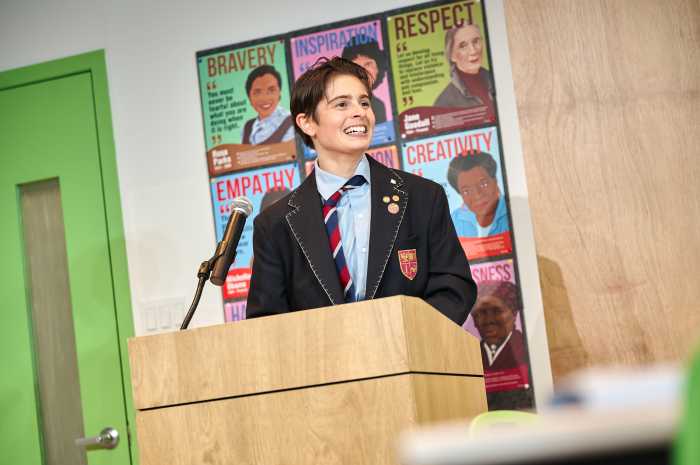Just a few months ago, Matthew Thomas was like a lot of creative people in New York – hard-working, incredibly talented, but largely unrecognized.
For the better part of a decade, the Bronx-born, Queens-raised author had spent most of his waking hours thinking about his students at Xavier High School in Manhattan, where he taught English and creative writing.
But whenever he had extra time, Thomas was working away at his debut novel, “We Are Not Ourselves,” a more than 700-page epic about an Irish-American woman’s pursuit of the American Dream from Woodside to Jackson Heights to Bronxville.
Since he sold the novel to Simon & Schuster, Thomas’ life has changed. The book, which debuts Tuesday with a reading at McNally Jackson, has become a cause for celebration in the literary world. And Thomas’ newfound success has allowed him to write full-time, and spend more time with his young children.
amNewYork spoke with Thomas about growing up in New York, immigration and the teaching life.
You worked on this book while teaching and raising twins. When did you find time to write?
I wrote late at night a lot of the time. I wouldn’t be able to have a clear mind unless I had papers graded, so I’d often start at 1 a.m. I’d stay up a couple extra hours and write and then just fall into bed. There were also the weekends and summers, but it was a lot of sleep deprivation mostly.
Have any of your students read your book yet?
Not yet. When I was teaching creative writing I never brought my work to class. Their work was the focus. I’m excited to have them read it because it would be a different conversation from the ones we had in the classroom.
Did you work on it consistently?
I had periods where I couldn’t write at all and there were some periods I was defeated and didn’t want to work on it. I tried to make it as routine as I could. The only way I got it written was by making it a secondjob. The most difficult periods were the times I wasn’t writing. It was easy to beat up on myself and think that the book was getting way from me. Even after a week away from it, it would feel like somebody else’s book when I got back into it.
Were you surprised by the reception it’s gotten and the attention from publishers?
Every day I’m grateful for all of it. For a long time, I was just hoping to finish the book. Then when I was done I was just hoping to publish it – period. So this has all been a blessing.
You grew up in Queens, where much of the novel takes place. How much of this book is the landscape of your childhood?
The book is rooted in autobiography, but it started to improve over the years as I got away from writing autobiographically and started inventing. I tried as hard as I could to get the Jackson Heights of my childhood on the page. It’s a challenging place to capture because there’s so much going on there with the mix of cultures. It’s the crossroads of the world.
How has that neighborhood changed since you lived there?
I went back to the Heights recently for a funeral and walked up the block Ilived on to get there. Several of the families I knew when I left are stillthere. It wonderfully preserves the feeling of a neighborhood in the way some neighborhoods in the city haven’t. Much of the book is set in New York in the mid-20th century.
Did you have to do research to write about the past that way?
Thankfully I was writing about something that was chronicled pretty regularly, so it wasn’t hard to find those sources. It also wasn’t hard to do the kind of anecdotal history you can get into just by interviewing people. People have long memories and New Yorkers in particular love to remember the New York that was. I interviewed family friends and people I’d met that were from the area at the time. I also consulted some books and did some time in the library and on the Internet.
This book is in part a story about Irish immigrants in another generation. Is the story of immigration still the great New York story?
Immigrants are the lifeblood of this country. The shot in the arm America gets when it receives an immigrant population full of that hunger and vitality and new ideas is fundamental to the success of this country. Whatever factions want to discourage immigration are forgetting their own history in a way. We’re all immigrants here and immigration is one of the pillars that built New York as a powerhouse. It still is.
IF YOU GO: Matthew Thomas is at McNally Jackson on Tuesday at 7 p.m., 52 Prince St., 212-274-1160




































